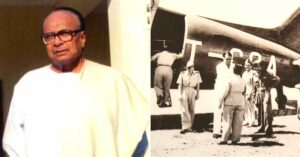‘They Call it a Man’s Job’: The Lives & Tribulations of 4 Women Who Cremate Unclaimed Bodies
Madhusmita Prusty, Smita Mohanty, Swagatika Rao and Snehanjali Sethi come from different walks of life, but found common ground in caring for and cremating the unclaimed dead in Odisha.
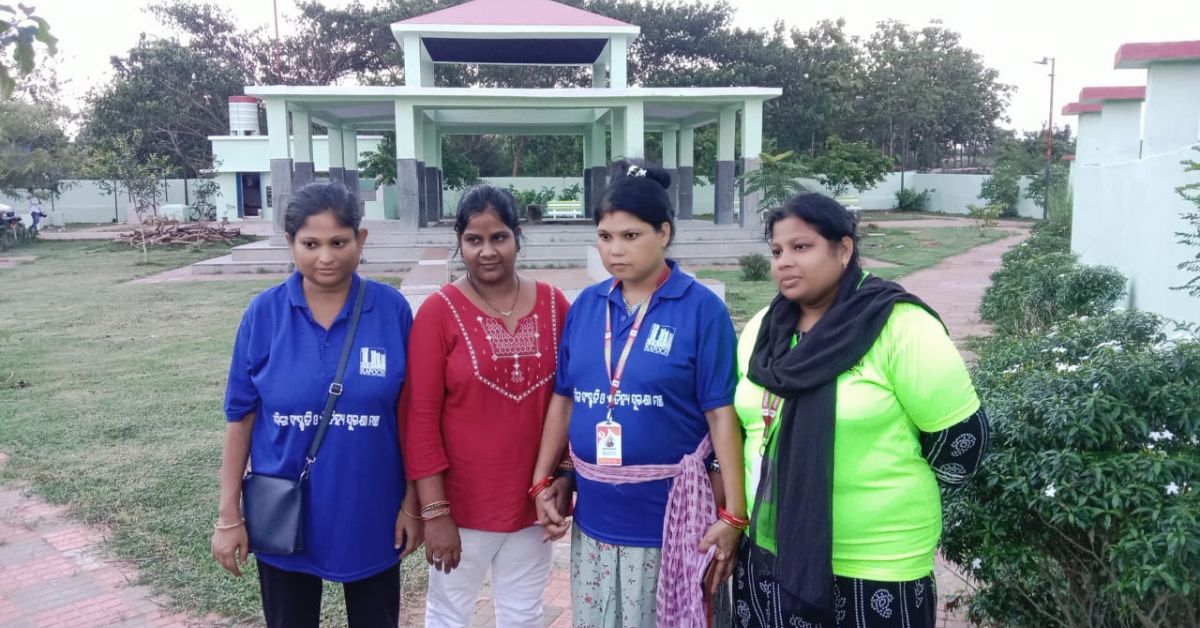
Trigger Warning: Graphic mentions of death, blood.
Nearly two months ago, when Odisha’s Madhusmita Prusty was leaving for work at 8:30 in the morning, she received a call from the Government Railway Police (GRP). It was to inform her about the unfortunate Odisha triple train accident, which had claimed the lives of 295 passengers in a matter of minutes the previous night.
By noon on June 3, the Bhubneswar resident reached Balasore along with three other women — Smita Mohanty, Swagatika Rao, and Snehanjali Sethi — in their ambulance.
Recalling the episode, Madhusmita tells The Better India, “The situation there was very unsettling. Blood was everywhere. Some were lying without limbs. The injured were crying for help. If we carried somebody to take them to the hospital, others would insist that we take them first. It was so hard for us, we did not know where to begin. It was a very emotional state for us. Their cries still echo in our ears.”
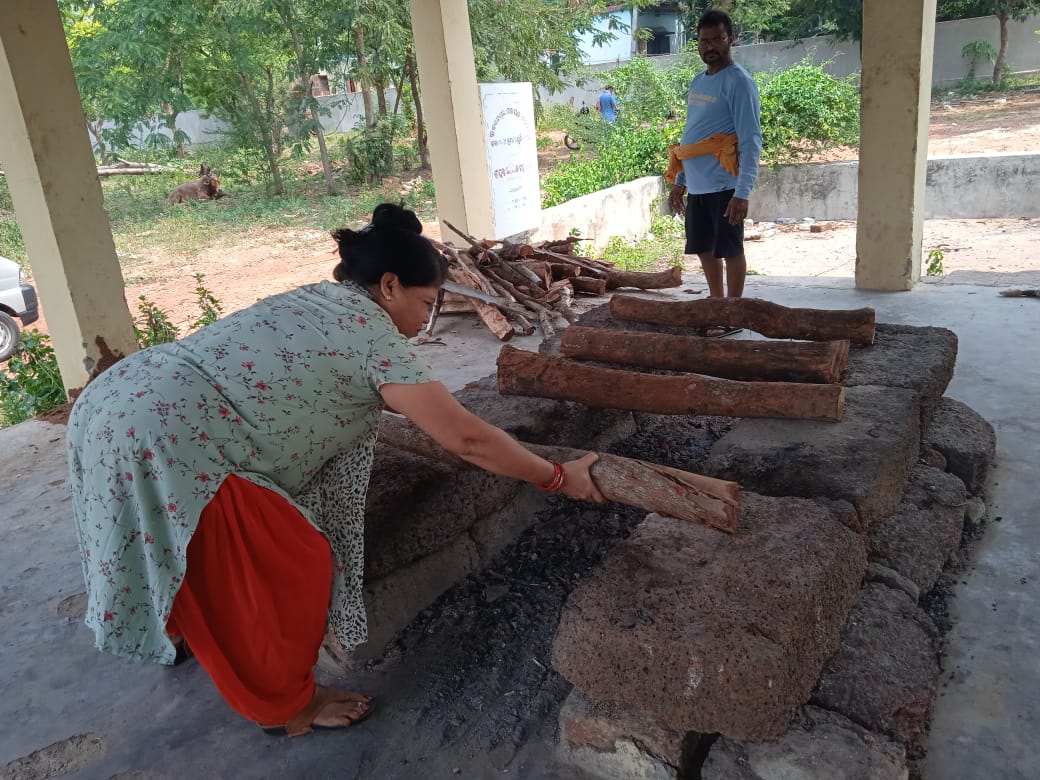
The four women were called to help the administration in transporting the injured to the hospitals and cremating unidentified and unclaimed bodies. “Seeing the situation, we first focussed on admitting severely injured people to hospitals in Cuttack and Balasore. Later, we were permitted to cremate five bodies,” she says.
As per The Indian Express, as many as 29 bodies are still preserved in AIIMS, Bhubaneswar premises to be identified by the authorities. After receiving the final round of DNA cross-matching reports, the authorities may conduct mass cremation of the unidentified bodies. “The work is ongoing with respect to the identification of the dead. We might soon be called to cremate them,” she says.
Courage above all
About five years ago, Madhusmita was working with a Kolkata hospital as a nurse in the paediatrics department. Over her 15 year career, she often saw the plight of the families of the deceased. “I would see wailing children and elderly next to their loved ones. They would not have sufficient money to perform the last rites and the authorities demanded a huge amount,” she says. “I remembered how my husband [who lived back home in Odisha] would do this work without charging any amount.”
In 2019, when her husband’s leg was fractured after slipping on a railway track, she decided to come back to her hometown. When no one from her husband’s non-profit Pradeep Sewa Trust was willing to take the job of cremating bodies, she stepped in and quit her job.
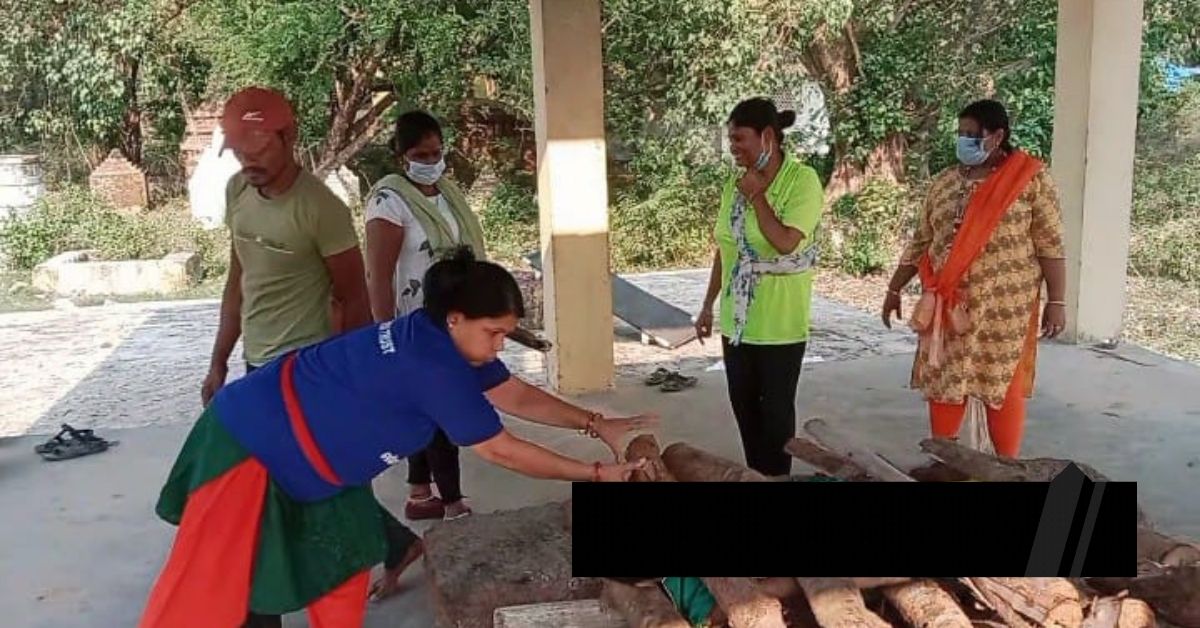
Soon after, when the country was coping with the losses of loved ones amid the COVID-19 pandemic, she cremated more than 500 unidentified and unclaimed bodies of patients with the help of Bhubaneswar Municipality Corporation. So far, she has cremated more than 1,500 such bodies.
Roughly five months ago, Madhusmita was joined by Smita, Swagatika, and Snehanjali in the initiative. While Swagatika is a bank employee and Snehanjali is a journalist by profession, Smita runs a small shop in the city.
Recalling her first day at work, Smita says, “We saw an elderly person, whose head was at one place, and body at another. His one hand laid half a kilometre away. I was asked to keep the body together.”
Seeing the body also triggered a devastating memory for the 43-year-old, who lost her brother in an accident 10 years ago. “We hardly know what exactly happened to him. We never got his body. He was just 14. He was so young, but he always dreamt big things for me. He wanted to gift me a car,” she snivels.
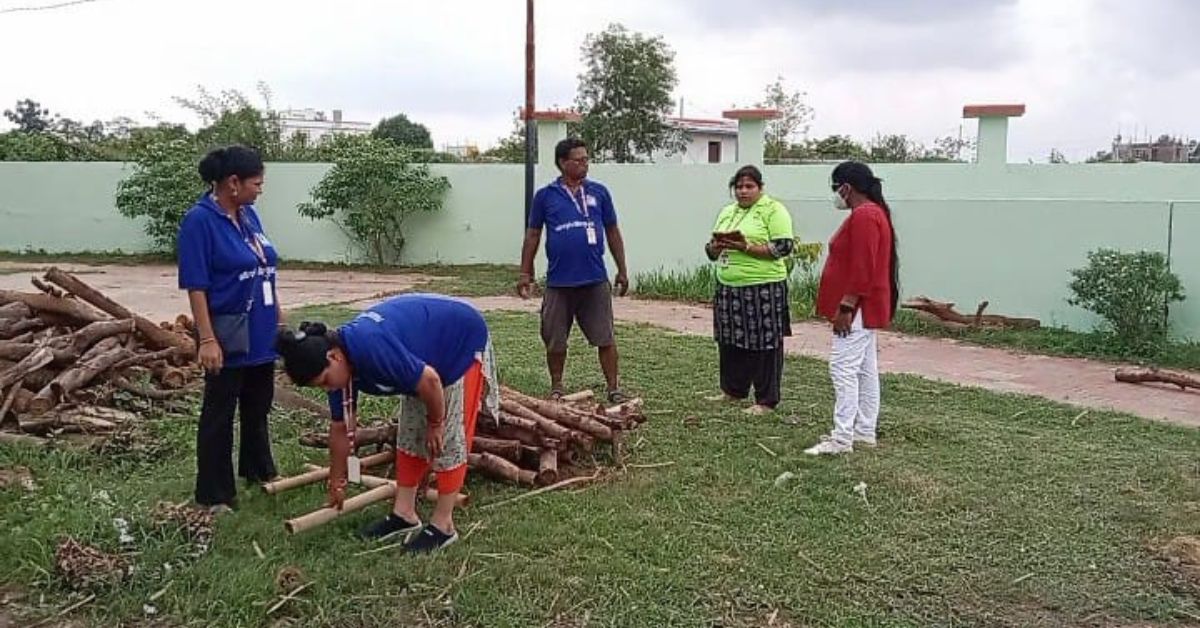
“Seeing the elderly man, I thought about what would have happened to my younger brother. If my brother went through the same hell, I would have never left him. I gathered courage and assembled the elderly man’s body. I will never forget that day.”
“No matter how dreadful the situation is, we gather the courage to do the work. Not everyone can do this,” says Smita.
‘Doing a man’s job’
The four women have bought an ambulance in which they carry unidentified bodies from railway tracks and other places to cremate them. After receiving information from the GRP, Madhusmita drives to the spot, from where they lift the bodies. “We get 25 bodies every month from railway tracks only. We keep the remains with us for three to four months in case somebody approaches us to claim the remains, otherwise, we release them near Puri beach.”
Without any other financial support, the women contribute part of their earnings to the cause. For example, they collectively bought the ambulance worth Rs 5.9 lakh in instalments, and contribute Rs 4,500 on the last rituals for every body.
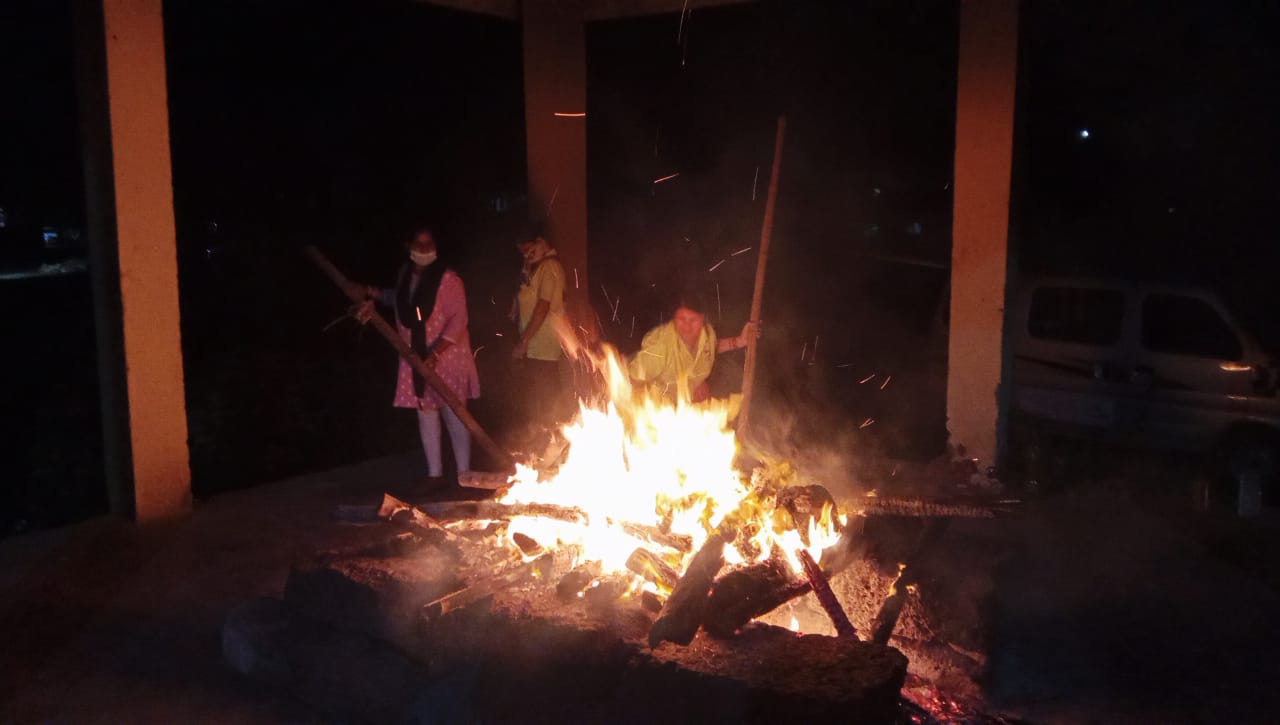
In doing so, they say, they find a sense of purpose.
For instance, Smita considers the work a good deed and a way to help her brother’s soul in rest peace, because like her, their families could not reach the body they cremate. In the past five months, Smita says she has cremated 47 dead bodies.
But this came with outbursts from neighbours and relatives as cremation is considered to be a man’s job.
“It is said that women are prohibited from cremating bodies or even going to the mortuary. Many people treat us as ‘untouchable’ and do not accept food from us, even customers at my shop have reduced. But since we have support from our families, we do not get bothered. Somewhere I believe, this would bring peace to my brother’s soul,” adds Smita.
To support them, you can reach out to Madhusmita at +91 6371 847 899.
Edited by Divya Sethu; All pictures courtesy: Madhusmita Prusty
Source:
‘Two months after Odisha train tragedy, 29 bodies yet to be identified’: By The Indian Express published on 2 August 2023.
If you found our stories insightful, informative, or even just enjoyable, we invite you to consider making a voluntary payment to support the work we do at The Better India. Your contribution helps us continue producing quality content that educates, inspires, and drives positive change.
Choose one of the payment options below for your contribution-
By paying for the stories you value, you directly contribute to sustaining our efforts focused on making a difference in the world. Together, let’s ensure that impactful stories continue to be told and shared, enriching lives and communities alike.
Thank you for your support. Here are some frequently asked questions you might find helpful to know why you are contributing?


This story made me
-
97
-
121
-
89
-
167




